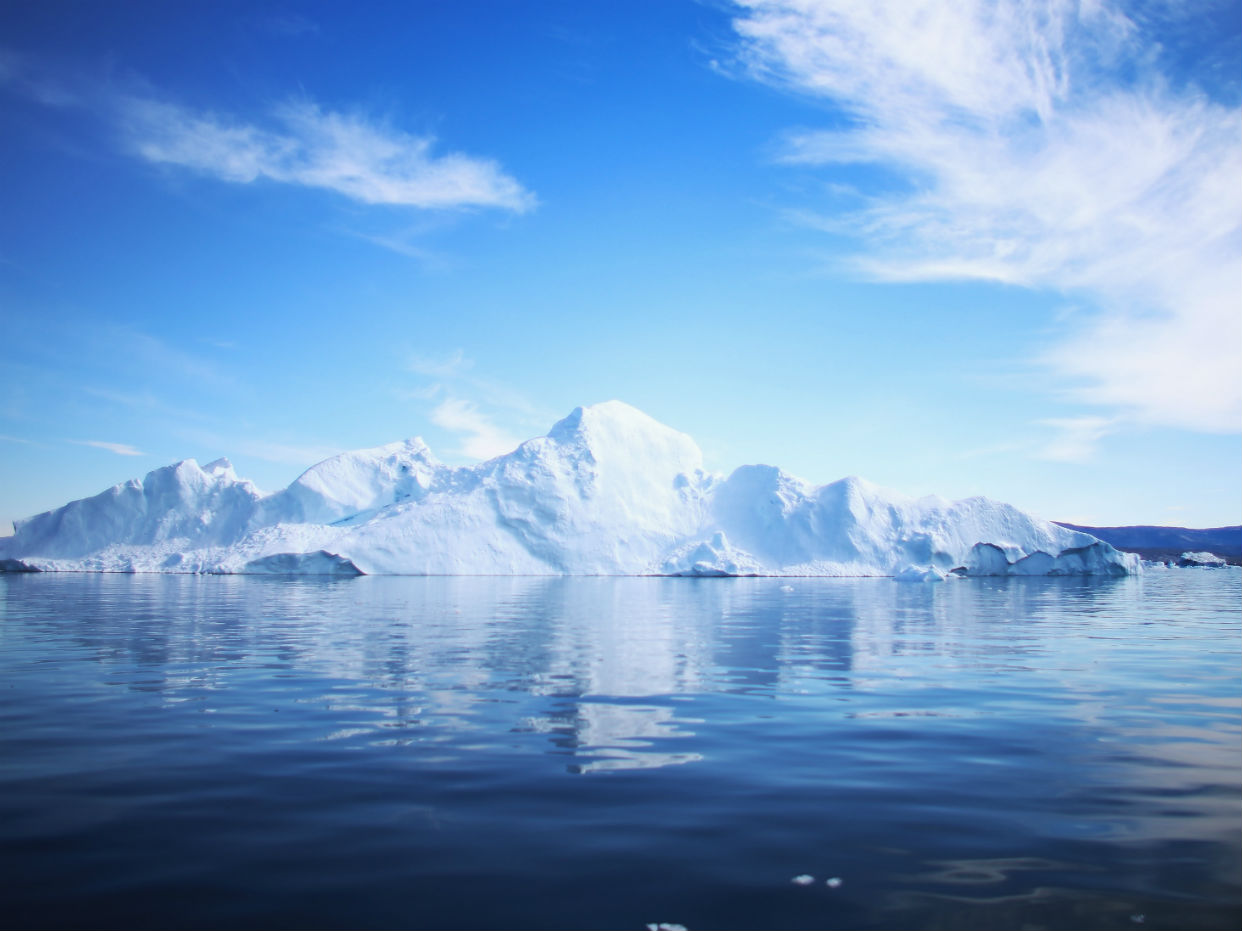Ancient landscapes revealed as Arctic glaciers melt
New study suggests region may be experiencing its warmest century in 115,000 years

A free daily email with the biggest news stories of the day – and the best features from TheWeek.com
You are now subscribed
Your newsletter sign-up was successful
Rising temperatures in the Arctic has led to the exposure of ancient landscapes that have been hidden under glaciers for more than 40,000 years, researchers say.
According to a study outlined in a newly published paper in journal Nature Communications, scientists collected 48 plant samples that had been covered by ice for hundreds of centuries on Baffin Island, part of the Canadian territory of Nunavut.
The team, from the University of Colorado Boulder, “also collected quartz from these areas to help determine the age and history of ice coverage”, reports USA Today.
The Week
Escape your echo chamber. Get the facts behind the news, plus analysis from multiple perspectives.

Sign up for The Week's Free Newsletters
From our morning news briefing to a weekly Good News Newsletter, get the best of The Week delivered directly to your inbox.
From our morning news briefing to a weekly Good News Newsletter, get the best of The Week delivered directly to your inbox.
They then used radiocarbon dating to estimate “death dates” for the plants, measuring the amounts of naturally occurring isotopes that decayed at certain rates over time. Their findings showed the plants had all died at least 400 centuries ago - “right in the middle of the last glacial period”, study author Simon Pendleton, a doctoral researcher at the university’ Institute of Arctic and Alpine Research, told Vice’s Motherboard.
When compared against temperature data reconstructed from Baffin and Greenland ice cores, the findings suggest that modern temperatures represent the warmest century for the region in 115,000 years, says ScienceDaily.
And “these trends are likely to continue and remove all ice from Baffin Island within the next few centuries, even in the absence of additional summer warming”, the scientists add in their report.
Earlier this month, a report from researchers at the University of California Irvine found ice in Antarctica is melting six times faster than it did 40 years ago. The melting has caused global sea levels to rise more than half an inch since 1979, the study found.
A free daily email with the biggest news stories of the day – and the best features from TheWeek.com
-
 The ‘ravenous’ demand for Cornish minerals
The ‘ravenous’ demand for Cornish mineralsUnder the Radar Growing need for critical minerals to power tech has intensified ‘appetite’ for lithium, which could be a ‘huge boon’ for local economy
-
 Why are election experts taking Trump’s midterm threats seriously?
Why are election experts taking Trump’s midterm threats seriously?IN THE SPOTLIGHT As the president muses about polling place deployments and a centralized electoral system aimed at one-party control, lawmakers are taking this administration at its word
-
 ‘Restaurateurs have become millionaires’
‘Restaurateurs have become millionaires’Instant Opinion Opinion, comment and editorials of the day
-
 Greenland’s capital becomes ground zero for the country’s diplomatic straits
Greenland’s capital becomes ground zero for the country’s diplomatic straitsIN THE SPOTLIGHT A flurry of new consular activity in Nuuk shows how important Greenland has become to Europeans’ anxiety about American imperialism
-
 Epstein files topple law CEO, roil UK government
Epstein files topple law CEO, roil UK governmentSpeed Read Peter Mandelson, Britain’s former ambassador to the US, is caught up in the scandal
-
 Iran and US prepare to meet after skirmishes
Iran and US prepare to meet after skirmishesSpeed Read The incident comes amid heightened tensions in the Middle East
-
 Israel retrieves final hostage’s body from Gaza
Israel retrieves final hostage’s body from GazaSpeed Read The 24-year-old police officer was killed during the initial Hamas attack
-
 China’s Xi targets top general in growing purge
China’s Xi targets top general in growing purgeSpeed Read Zhang Youxia is being investigated over ‘grave violations’ of the law
-
 Panama and Canada are negotiating over a crucial copper mine
Panama and Canada are negotiating over a crucial copper mineIn the Spotlight Panama is set to make a final decision on the mine this summer
-
 Why Greenland’s natural resources are nearly impossible to mine
Why Greenland’s natural resources are nearly impossible to mineThe Explainer The country’s natural landscape makes the task extremely difficult
-
 Iran cuts internet as protests escalate
Iran cuts internet as protests escalateSpeed Reada Government buildings across the country have been set on fire